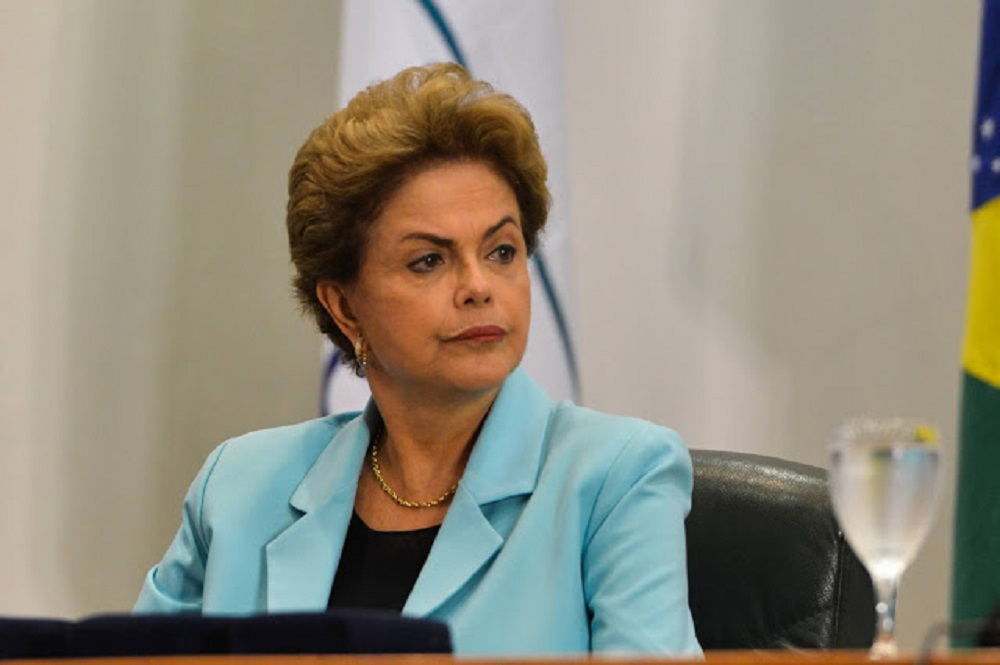RIO DE JANEIRO, BRAZIL – Michel Temer became president, Lula was arrested and released, Jair Bolsonaro was elected, and three and a half years after being impeached, Dilma Rousseff continues her quixotic battle to nullify the impeachment proceedings that toppled her from the presidency of the republic.

Rousseff describes it as one of her last trenches in a lawsuit she has brought since September 2016 before the Federal Supreme Court (STF) for this purpose. This Friday, November 22nd, the court is expected to consider an appeal she has filed for the case to be re-examined.
Rousseff, defended in the case by her erstwhile minister of justice José Eduardo Cardozo, has amassed defeats in court. At this stage, she is awaiting the judgment of her counsel’s motion for clarification, a type of objection in which she asks for additional explanations of a previous decision and demands a new trial.
Although it is inconceivable that a potential annulment of the impeachment would bring her back to office, the admission that the proceeding was fraudulent would help to “re-establish the truth” about what she sees as a “parliamentary coup justified by lame arguments”.
The trial of the appeal is scheduled to take place in the so-called “virtual” plenary, where the court justices vote electronically rather than when in session. The ex-president has two petitions: 1) that the individual decision handed down in December 2018 by Justice Alexandre de Moraes, rejecting the invalidity of the deposition, be reviewed by a panel of the STF; and 2) that her hearing be conducted in an in-person session.
On November 12th, her attorneys demanded that the case be heard by the court in person, using the argument that this is an injunction sought by a former president and that the matter is of considerable importance.
This motion would allow Dilma’s defenders the chance to present their case orally in court. Moraes, the rapporteur of the case, rejected the request and said that “the trial in a virtual environment does not hinder the discussion”.
The appeal being debated reached the court in December 2018, days after the rapporteur denied Dilma’s original claim. He stated that it would not be up to the STF to interfere in the “virtue of political decisions handed down in the impeachment”.
In their motions, attorneys claimed that since her youth Dilma “had as a driving principle in her life – the perspective that whoever supports wrongdoing with bravery later conquers good”.
In her defense, Dilma said that the nullification of her impeachment would restore “the truth in the eyes of future generations”.
Among the arguments raised by Dilma is that there was a misuse of power of then Chamber President, Eduardo Cunha, in the decision to bring the lawsuit to remove her from the presidency. It would be an “insurmountable defect” of the proceeding.
According to her, Cunha – incarcerated since 2016- acted out of revenge, after the PT refused to make an agreement to bar the annulment of his mandate in the Ethics Committee.
Rousseff further stated that the impeachment proceeding was “marked by unconstitutionality and illegalities” and that there was no evidence of just cause to qualify as an impeachable “crime of responsibility”.
There was, in her view, “explicit immorality and hypocrisy”, without “any accusation of corruption”, except for the “implication of the practice of budgetary administration actions that all previous governments practiced”.
In her petition to the STF, Dilma also attacked her former vice president, Michel Temer. She said that “personal, political and institutional disloyalty may be the only tangible legacy of his government”, which she calls illegitimate.

“The mandate is over, it’s impossible to take it up again now,” Cardozo says to the report. “I am seeking to ensure the right to submit an oral defense, which is not feasible in the electronic system.”
The former minister believes that the virtual plenary should be used for less complex cases, “not the case of the removal of a president from office, something of broad relevance to Brazilian constitutional law”.
The ex-president’s advice was sought, but she did not wish to comment on the trial.
The impeachment annulment banner was waved in PT circles between 2016 and 2017. Rousseff’s supporters and party leaders started movements in favor of her cause, but the campaign cooled down. In recent months, leftwingers have celebrated rightwing statements concurring with the argument that she was the victim of a coup.
In October, Chamber of Deputies President Rodrigo Maia said that Temer conducted the proceeding that removed Dilma.
Temer himself, in September, used the word “coup” to refer to the impeachment of the leftist. Later, he said he had used the term because “people said it was.”
Also in September, former senator Aloysio Nunes Ferreira, a supporter of the impeachment, told the story that there was “political manipulation of the impeachment” by the Lava Jato task force in Curitiba and by former judge Sérgio Moro.
Rousseff, who left the Planalto in May 2016, had her mandate revoked by the Senate in August of that year but kept her political rights. In 2018, she finished fourth in the Senate race for Minas Gerais.
The preservation of her political rights is also the target of actions in the STF. Justice Rosa Weber released the case for voting in December, but the trial date has not been scheduled.

